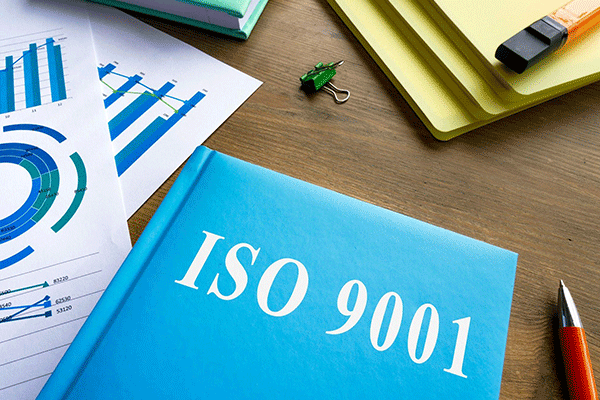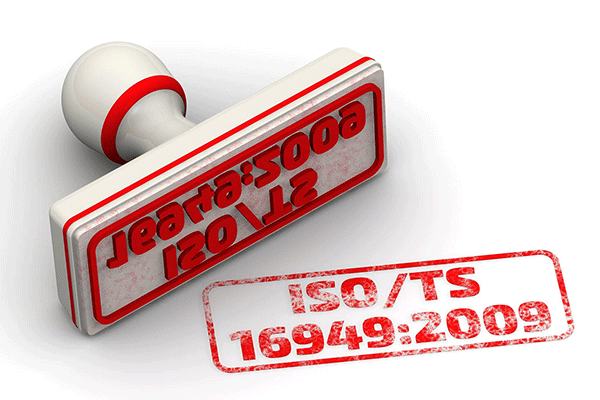Irrespective of the industry, quality remains a significant consideration for every organisation. The success of every organisation depends upon the quality of the services or products it delivers. Quality encapsulates a broad spectrum of attributes, including efficiency, safety and reliability. Some organisations define quality as adhering to customer expectations.
With so much discrepancy in the definition of quality, there is a need for standard guidelines for different industries to manage their product quality and reduce deviations to a minimum. ISO 9001 and IAF/TS 16949 are highlighted for their quality guidelines. This article will differentiate between both these standards.
ISO 9001
The ISO 9001 standard is a set of international guidelines that define the requirements for an effective Quality Management System (QMS). Certifying standards allow organisations to consistently deliver high-quality products and services while meeting regulatory requirements and customer expectations.

IATF 16949
IATF/TS 16949, specified by the International Automotive Task Force (IATF), provides QMS requirements specifically for the automotive industry. To acquire certification in the standard, automotive companies need to comply with the manuals of both IATF 16949 and ISO 9001.
Difference between ISO 9001 and TS 16949
Although both the standards share the same structure, there are specific differences that you should know for successfully implementing best practices in your organisation. These differences are:
- ISO 9001 defines the fundamental requirements of a quality management system for every organisation, whereas IATF 16949 focuses on the requirements of QMS for automotive organisations.
- IATF 16949 should be implemented as an extension and in combination with ISO 9001:2015, whereas the ISO 9001 standard can be implemented alone as a stand-alone document.
- ISO 9001 applies to all the sites of the organisation, whereas the applicability of IATF 16949 is for organisation sites that produce service parts or parts for car assembly. The IATF 16949 standard is not applicable for aftermarket parts.
- ISO 9001 emphasises customer satisfaction, whereas IATF 16949 focuses on customer-specific requirements.
- ISO 9001 does not need calibration/verification for all measurement systems. You are recommended to calibrate only the systems that significantly contribute to the quality of your product and leave the other systems as they are. On the other hand, IATF 16949 requires verification/calibration activities and records with details or conformity for all measurement systems. IATF 16949 also requires details on conformity to specifications after the calibration/verification activity.
- The accreditation bodies for ISO 9001 include auditors from certification bodies, whereas the accreditation body for IATF 16949 includes auditors, IATF and International Automotive Oversight Bureau (IAOB).

Similarities between ISO 9001 and IATF 16949
Although these guidelines are different, they share one common goal: to help organisations enhance the quality of their processes, products, services and systems. Achieving quality ensures fulfilment, longevity, security, usability and efficiency of the product.
To keep your customers satisfied and retain their loyalty for long-term profits, it is critical to maintain the quality of your products and services. Maintaining quality processes makes the organisation a more efficient and holistic place to work while fostering a culture of continuous improvement. Quality also helps organisations achieve productivity, sustainability, profitability, success and customer satisfaction.
When you have a well-documented QMS in your organisation, you can leverage multiple benefits like:
- Smoother communication and collaboration to eliminate inconsistencies.
- Continuous improvement and process alignment with quality objectives.
- Rich employee engagement.
- Prompt recognition and fulfilment of skill gaps and training requirements.
- Lower costs.
- Reduced chances of mistakes that are financially draining.
To achieve quality consistently, you need a QMS that not only helps to streamline and standardise your processes but also measures and reviews your performance analytics to make the necessary changes in the system.

Additional requirements for the application of ISO/TS 16949
Even though ISO/TS 16949 is based on ISO 9001 and includes all its requirements, the standard is written and designed for use in automotive applications and has little relevance outside the industry. If you already have the ISO 9001 standard implemented in your organisation, it may be helpful to investigate the practicality of adding the additional requirements of ISO/TS 16949 to your QMS.
The standard allows you to choose whether you want to apply the recommendations to the additional areas of your company or restrict the application to only the automotive areas of your company.
Conclusion
Both ISO 9001 and TS 16949 focus on quality management, but the main difference is that the former applies to many organisations. In contrast, the latter only focuses on the automotive industry. Essentially, ISO 9001 defines the fundamental requirements of a QMS for every organisation, whereas the IATF 16949 can be considered an extension of the standard. Another main difference is that the ISO 9001 standard focuses on customer satisfaction, while the IAF 16949 standard focuses on customer-specific requirements. Similarly, the calibration system is another distinguishing feature between the two standards, where the ISO 9001 standard does not require calibration for all measurement systems.








Users Comments
Get a
Quote